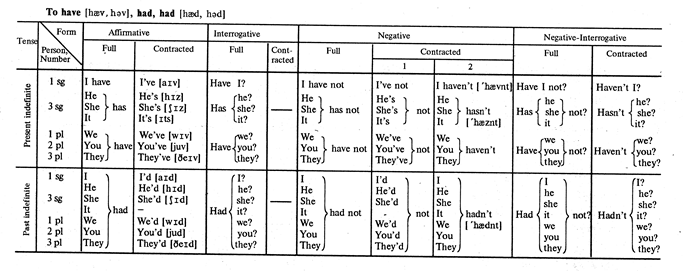
РЕЗОЛЮЦІЯ: Громадського обговорення навчальної програми статевого виховання
ЧОМУ ФОНД ОЛЕНИ ПІНЧУК І МОЗ УКРАЇНИ ПРОПАГУЮТЬ "СЕКСУАЛЬНІ УРОКИ"
ЕКЗИСТЕНЦІЙНО-ПСИХОЛОГІЧНІ ОСНОВИ ПОРУШЕННЯ СТАТЕВОЇ ІДЕНТИЧНОСТІ ПІДЛІТКІВ
Батьківський, громадянський рух в Україні закликає МОН зупинити тотальну сексуалізацію дітей і підлітків
Відкрите звернення Міністру освіти й науки України - Гриневич Лілії Михайлівні
Представництво українського жіноцтва в ООН: низький рівень культури спілкування в соціальних мережах
Гендерна антидискримінаційна експертиза може зробити нас моральними рабами
ЛІВИЙ МАРКСИЗМ У НОВИХ ПІДРУЧНИКАХ ДЛЯ ШКОЛЯРІВ
ВІДКРИТА ЗАЯВА на підтримку позиції Ганни Турчинової та права кожної людини на свободу думки, світогляду та вираження поглядів
- Гідрологія і Гідрометрія
- Господарське право
- Економіка будівництва
- Економіка природокористування
- Економічна теорія
- Земельне право
- Історія України
- Кримінально виконавче право
- Медична радіологія
- Методи аналізу
- Міжнародне приватне право
- Міжнародний маркетинг
- Основи екології
- Предмет Політологія
- Соціальне страхування
- Технічні засоби організації дорожнього руху
- Товарознавство продовольчих товарів
Тлумачний словник
Авто
Автоматизація
Архітектура
Астрономія
Аудит
Біологія
Будівництво
Бухгалтерія
Винахідництво
Виробництво
Військова справа
Генетика
Географія
Геологія
Господарство
Держава
Дім
Екологія
Економетрика
Економіка
Електроніка
Журналістика та ЗМІ
Зв'язок
Іноземні мови
Інформатика
Історія
Комп'ютери
Креслення
Кулінарія
Культура
Лексикологія
Література
Логіка
Маркетинг
Математика
Машинобудування
Медицина
Менеджмент
Метали і Зварювання
Механіка
Мистецтво
Музика
Населення
Освіта
Охорона безпеки життя
Охорона Праці
Педагогіка
Політика
Право
Програмування
Промисловість
Психологія
Радіо
Регилия
Соціологія
Спорт
Стандартизація
Технології
Торгівля
Туризм
Фізика
Фізіологія
Філософія
Фінанси
Хімія
Юриспунденкция
Tense Auxiliaries
As the majority of the finite form of the verb are analytical they are formed by means of auxiliary verbs (auxiliaries). These are: to do, to be, to have, shall, will.
In the spoken language some forms of the auxiliaries and the negation not are contracted which is shown in writing by means of the apostrophe (‘)

Note:
In the spoken language is [ɪz] is usually weakened and is pronounced [z] after vowels and voiced consonants (except voiced sibilants and affricates), [s] after voiceless consonants (except voiceless sibilants and affricates), [ǝz] after sibilants and affricates (both voiced and voiceless). This weakening of the form is not usually shown in writing:
The boy is gone (ðǝ 'boɪz'gon].
The plan is good [ðǝ 'plænz'gud].
The cup is broken [ðǝ 'kʌps'broukæn].
The bus is coming up [ðǝ 'bʌsǝz'kʌmɪŋ'ʌp].
* The contraction of are combined with certain personal pronouns is pronounced differently is British and American English, viz.:
| British English | American English |
| we’re [wɪǝ] you’re [juǝ] they’re ['ðeɪǝ] | [wɪr] [jur] [ðеr] |
** In dialect and "uneducated" British and American English the form ain’t is very common. It is used as a contracted form of am not, are not, is not, have not and has not. Ain’t is not used in standard (“correct”) English. .
I ain’t going to buy it.
Don’t talk to me like that, you ain’t my mother.
It ain’t raining, let’s go out.
I ain’t got any money.
He ain’t seen me yet.
** ‘m not is replaced by aren’t in the negative-interrogative (Aren’t I clever enough? I’m clever enough,aren’t I?)


Note:
As a future tense auxiliary shall (should) is used with the 1st person (singular and plural) only.

Note 1:
As a future tense auxiliary will (would) in its full form is commonly used with the 2nd and the 3rd persons. Nowadays however there is strong tendency to use it with the 1st persons as well, especially in American English.
Note 2:
The contractions ‘ll and ‘d stand for will and would, not for shall and should, though they are widely used with the 1st persons as well.
Переглядів: 314